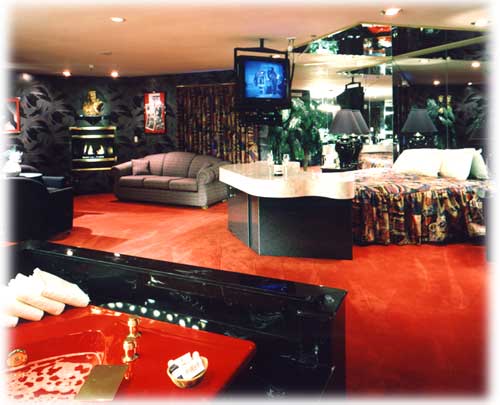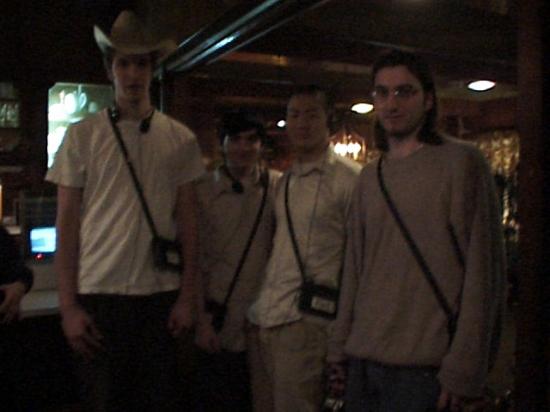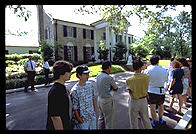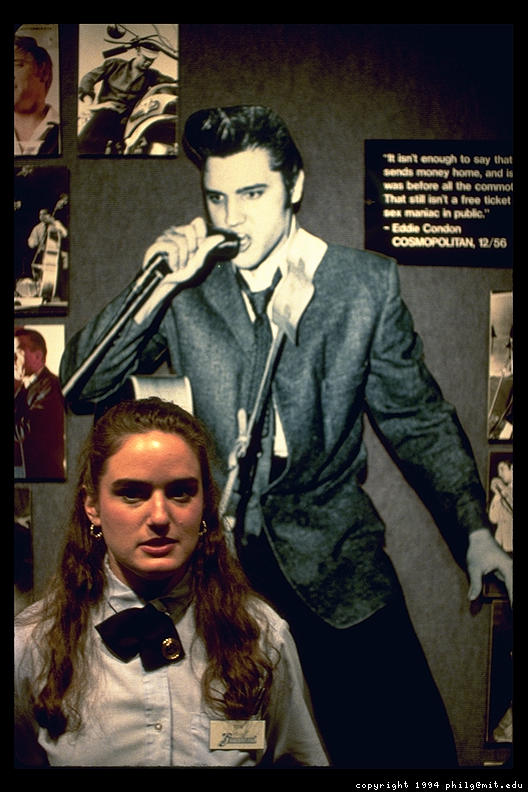Synthesis
It would be hard pressed to make an argument against the lavish and luxurious lifestyle that is embedded within the seemingly hallowed halls of the second most visited house in the country. From its over-decorated themed rooms, to the forbidden upstairs level of the house, Graceland stands, in one sense, a testament to what is classically perceived as American. Within its walls is a rags to riches story of a simple Southern boy who made good in the music business, a young man who would eventually go on to capture the hearts and fascination of countless fans around the country. However, now, 25 years after Elvis’ death, Graceland stands as perhaps the most known part of the Elvis Presley legacy. His music may have faded, and his image remains amorphous, but it is his house that still remains a tangible testament to the memory of Elvis Presley. The house itself has carved its own niche within the larger urban sphere of Memphis Tennessee, and serves to promote a wholesome, family-oriented image.
While the argument can be that Graceland detracts from local business, it must also be looked at in terms of the economic system within which it exists. The Memphis economy is one which is dominantly tourist based. The city, which advertises itself as the “Home of the Blues,” is actually home to a plethora of tourist attractions. As is the case with most of the attractions such as Beale Street, the Memphis Zoo, Mud Island River, and the National Civil Rights Museum, each has its own economic infrastructure based on the shops, restaurants, and other attractions which are located within a close proximity. Graceland is no exception to this rule. As was mentioned in the political economy essay, much of the income generated in the area comes from the restaurants and other concessions located adjacent to Graceland. In this sense, Graceland functions dually as a theme and an economic strategy. The theme is sold and re-sold at the countless knick knack stores, restaurants, and other establishments which carry the Elvis / Graceland theme.
geography senior seminar 2002 class trip to graceland

elvis may have slept here. ..NOT!

from left to right: stefan (before dreads) , prof. nevarez, steve, jay
random peeps up at elvis' crib, one.
One of the main things which must be emphasized about Graceland is that it no longer primarily functions as a Mecca for Elvis die-hards. As journalist Bruce Ward points out, the industry built around Elvis’ music and image is starting to look a bit shaky at the hips (pun intended). He attributes this to one very simple statistic, “[W]hy this is happening is all in the demographics. Run the numbers: Elvis would have turned 67 this year, and most of his hardcore fans are pushing 60. There are few young fans out there…”. Yet the house itself continues to be a major tourist attraction, pulling in an approximate 750,000 visitors a year.* Why does Graceland still have such an amazing drawing power? The answer lies most likely, in the supposition that the house is not a memory of the music or movies that Elvis made popular. Rather, it stands as a testament to a practice which is uniquely American, that of materialistic consumption. In essence, Graceland presents the ultimate picture of exuberance, this overwhelming desire that the acquisition of stuff forges one’s own status is society. Elvis was an entertainer, and as a result, lived a lifestyle that is beyond the comprehension of many your average workingman. Step back and ask yourself why the television show called MTV Cribs is so successful. The answer would probably be because average American people have a dualistic fascination with materialistic gain and celebrity status. It is a great enjoyment to see how those with an abundance of money choose to spend it. In one sense, few other artists are able to match the sheer lavishness that Elvis’ Graceland achieves. Aside from it nefarious décor, the house seemingly embodies a spirit of decadence and over production that is a common element in most family-oriented themed spaces. Other examples of this phenomena include the bubbly, family atmosphere of Disney at a large level, and the flarey crap that decks the walls of most family eateries.
In terms of Graceland as a themed space, it does well to accentuate aspects which will prompt tourists to continue visiting the mansion. In the same vein, negative aspects of Elvis’ career are omitted or not made available to the public when visiting the house. The most obvious example of this would be the forbidden upstairs part of the mansion. It is in that location where an over-weight and drug riddled Elvis met his ultimate end while sitting on his bathroom toilet. Also omitted from a tour of Graceland is the master bedroom, where Elvis was known to lock himself up during one of his infamous drug and alcohol binges. The reason that these parts of the house are kept closed to the public is quite basic. Simply put, they detract from the overall wholesome image that Elvis Presley Enterprises Inc., wants to convey.
In order to maintain a wholesome economic base, Elvis Presley Enterprises Inc. continues to expand on the mansion in any way that they can. In 2000, Heartbreak Hotel was opened directly across the street from Graceland. For a fee, visitors can spend the night in one of 128 Elvis themed rooms, while watching one of the king’s classic movies on the all-Elvis network. Also opened in 2000 was the Wedding Chapel, where newlyweds can get their wedding photos taken. More recently, Graceland itself was transformed into a mobile unit and transported across America for the benefit of those who cannot make the trek to Memphis themselves. All of these strategies seek to expand the cultural image of Graceland, and to promote it through new economic venues.
*The drop in visitor numbers to 600,000 was attributed mainly to the events of Sept. 11th
Sources
Gardner, Elysa, “Graceland Ever Growing,” LIFE Magazine, 16 Aug 2002, pg. 8D
Baird, Woody, “Presley’s Home Earns Millions,” Financial News, 14 August 2002
Ward, Bruce, “Twenty-Five Years After His Death, The King Still Rules at Graceland,”
The Ottawa Citizen, July 21 2002, pg. C3
girl, you never had it so good!
we apologize for the rather rudimentary appearance of this website, but we did our best


